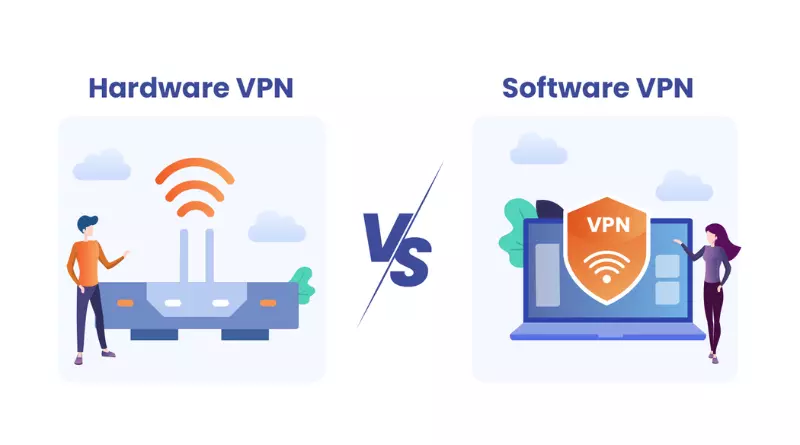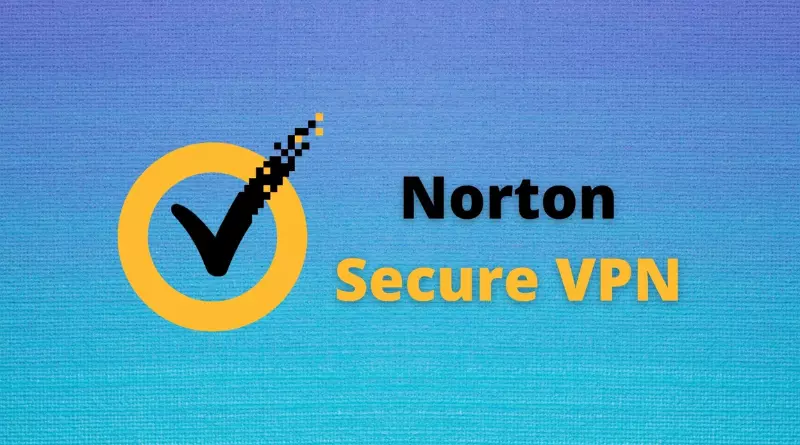Comparing VPN Hardware and VPN Software: Important Distinctions

Hardware and software VPNs have different ways of working, but they share a common goal: making your online activities more private. Hardware VPNs use special physical devices like routers and firewalls to create secure connections between various devices on a network. On the other hand, software VPNs use apps to encrypt connections on individual devices and link them to remote servers.
These differences also mean that different types of users prefer each option. Big companies often go for hardware VPNs because they have complex networking needs. In contrast, regular people and small businesses often find software VPNs better for keeping their online activities secure on a smaller scale.
When you’re deciding between hardware and software VPNs, it’s essential to consider how secure they are, how fast they work, and how much they cost. To help you choose, we’ve simplified the details so you can make a decision more easily.
What Is VPN Hardware?
VPN hardware is a physical device designed to create secure connections between networks. Unlike software-based VPNs that require individual installations on devices, hardware VPNs are dedicated pieces of equipment. They establish private and encrypted links between different networks, ensuring the security of data transmitted between them.
Businesses and organizations commonly use hardware VPNs to ensure secure communication between various locations. For instance, they are often employed by companies with remote employees, branch offices, or collaborative partners. Hardware VPNs play a crucial role in safeguarding data from potential threats during transmission.
The primary advantage of hardware VPNs is their centralized and robust approach to securing connections. These devices have their own dedicated processors for handling important functions like authentication and encryption, providing an extra layer of protection to the data being exchanged.
However, it’s important to note that setting up and maintaining a hardware VPN can be more complex than using software-based VPN solutions. It requires technical expertise and may involve higher costs due to the physical hardware involved.
Key Components of a Hardware VPN Include:
1.VPN Gateway or Router:
This central device manages the VPN connection, encrypts and decrypts traffic, and serves as the core of the hardware VPN.
2.Network Interface Cards (NICs):
These cards establish the physical connections between the VPN gateway and the networks it connects.
3.Encryption or Decryption Engine:
This hardware component is responsible for performing the encryption and decryption of traffic.
4.Network Switch:
This device connects multiple devices to the VPN gateway, allowing them to securely communicate with each other.
5.Redundancy and High Availability Features:
These features ensure that the VPN connection remains accessible, even in the event of a component failure.
6.Management Interface:
It enables the configuration and management of the VPN gateway.
7.Authentication Mechanisms:
These mechanisms verify the identity of users and devices before granting them access to the VPN.
8.Additional Security Features:
These features protect the VPN connection from various attacks, such as intrusion detection and prevention systems.
9.Load Balancer:
This device evenly distributes traffic across multiple VPN gateways, enhancing performance and reliability.
Who Benefits Most from Hardware VPNs?
Hardware VPNs are most suitable for organizations that require a high level of security and performance, particularly in contexts such as:
•IoT security
•Remote work environments
•Government agencies
•Financial and healthcare institutions
•Supply chain security
•Military communications
•Department of Defense contractors
Benefits of Using a Hardware VPN:
1.Enhanced Security:
Hardware VPNs prioritize data protection and use dedicated hardware resources for encryption and authentication, making them ideal for industries with stringent data protection regulations.
2.Optimized Performance:
With dedicated processing power and specialized components, hardware VPNs ensure faster data transfers, crucial for businesses managing substantial traffic or large user bases.
3.Centralized Management:
Hardware VPNs simplify administrative tasks by offering a centralized management framework, enabling swift deployment, monitoring, and maintenance, saving time and resources.
4.Reliability and Redundancy:
Hardware VPNs ensure continuous operation and minimal downtime, thanks to availability and redundancy components that prevent disruptions.
5.Interoperability and Compliance:
Hardware VPNs are compatible with various devices and meet compliance standards, ensuring data security and privacy.
Hardware VPNs vs. Software VPNs: Key Comparisons
Both hardware and software VPNs have their unique strengths, making them suitable for different user preferences, security requirements, and operational needs.
VPN Hardware vs. VPN Software Overview
Decision: Should I Go for VPN Hardware or VPN Software?
Deciding between a hardware VPN and a software VPN depends on your specific situation.
- Size of Your Organization:
A software VPN is usually sufficient if you have a small organization or need a VPN for personal use. For larger organizations with many users, a hardware VPN may be a better choice.
- Security Needs:
Hardware VPNs offer highly customizable security and are suitable for industries with strict compliance requirements. On the other hand, software VPNs provide good security for general needs and are more affordable and user-friendly.
- Network Complexity:
If you have a complex network with numerous users, a hardware VPN may be easier to manage than a software VPN.
Choosing the Best VPN Hardware Device
When selecting a VPN hardware device, consider the following:
- Concurrent Connections:
Ensure the device can handle the number of VPN connections you need without slowing down.
- Protocol Compatibility and Encryption:
Look for support for common VPN protocols and strong encryption to protect your data.
- Security Features:
Check for built-in firewalls, intrusion detection and prevention systems, content filtering, and malware protection.
- Integration:
Ensure the device can work seamlessly with your existing network setup, including routers, switches, and other security devices.
- Vendor Reliability:
Choose a device from a reputable vendor with a solid track record for ongoing support and updates.
Some examples of VPN hardware manufacturers and models include PacStar, SonicWall, Cisco IR1101, and Archon’s GoSilent Hardware VPN. Make your choice based on your particular requirements and budget.
Choosing the Best VPN Software:
If you prefer VPN software, consider using ExpressVPN for its ease of use and solid security:
- No Logs:
ExpressVPN doesn’t record your internet traffic to protect your privacy.
- Diverse Server Locations:
Access 94 server locations worldwide to break through censorship and get unrestricted access.
- Blazing Speeds:
Enjoy high-speed streaming with ExpressVPN’s optimized network and multiple protocols.
- Kill Switch:
Your data remains protected even if the VPN connection drops with ExpressVPN’s Network Lock.
- Strong Encryption:
Shield your online presence with 256-bit encryption against potential threats.
- Device Coverage:
ExpressVPN’s apps cover Android, iOS, laptops, and routers.
- Tech Expert Approval:
Trusted since 2009, ExpressVPN is recognized by tech experts and audits for its commitment to privacy.
- 24/7 Customer Support:
Get assistance round the clock with ExpressVPN’s customer support.
Choose the VPN solution that aligns best with your needs and preferences.




